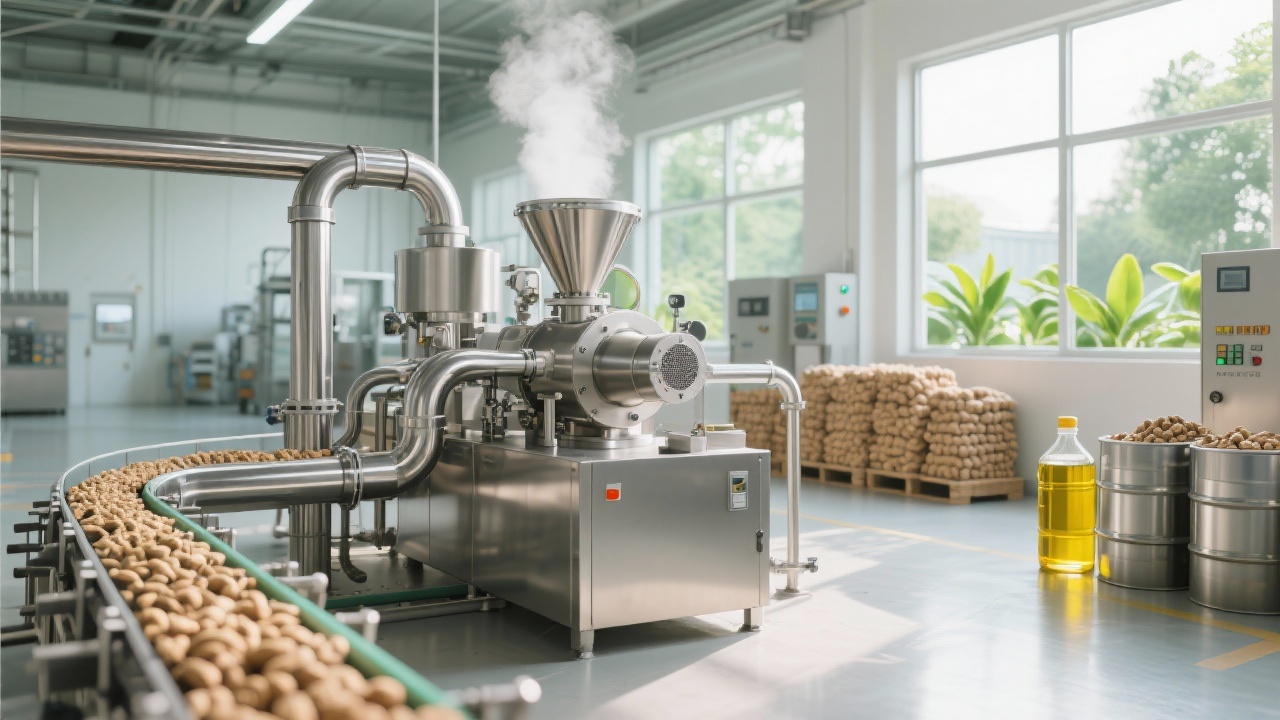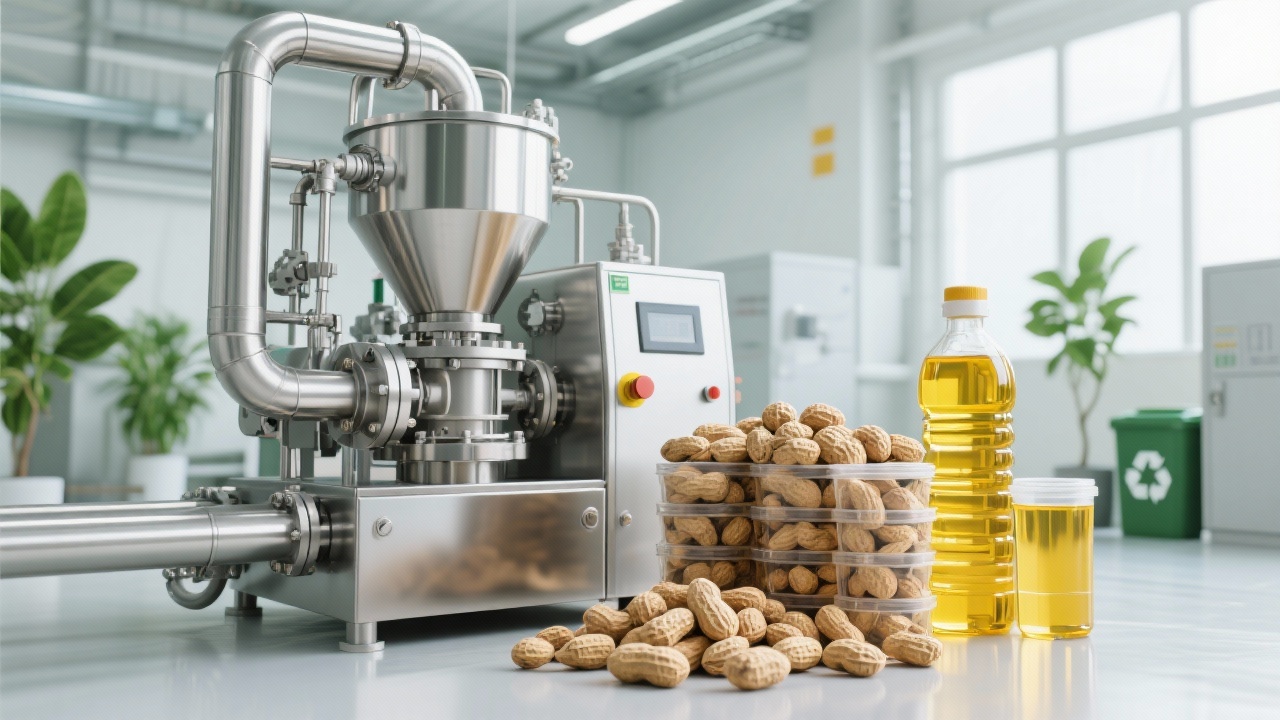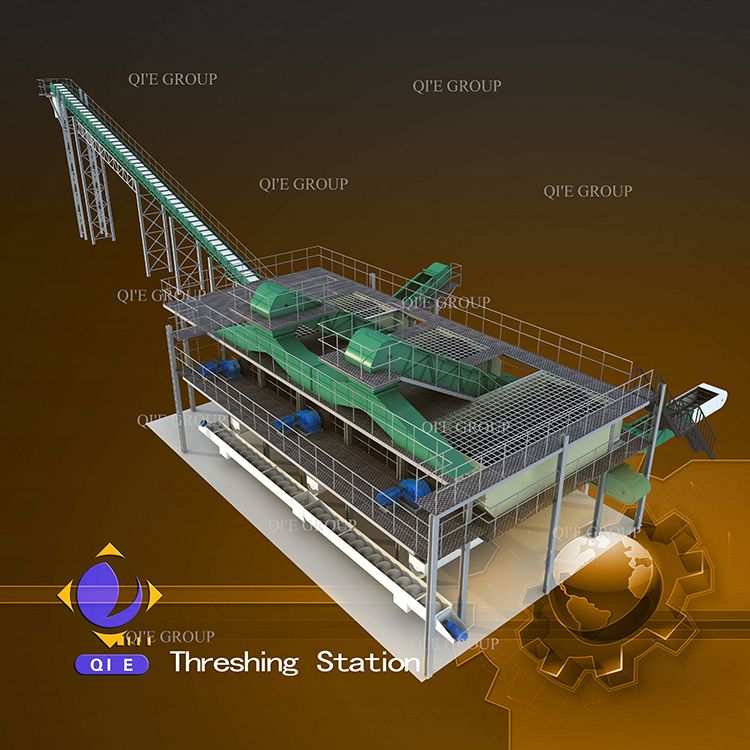
In the palm oil processing industry, the efficiency and stability of palm oil pressing equipment are crucial for the overall productivity and profitability of the production line. This article delves into how automated monitoring can enhance the production efficiency and stability of palm oil pressing equipment, with a focus on the application of PLC control systems.
Automation control systems play a central role in modern palm oil pressing equipment. They can significantly improve the production process by ensuring precise control of various parameters. The Programmable Logic Controller (PLC) system, in particular, is at the heart of this automation, enabling real - time monitoring and adjustment of key process variables.

The PLC system can continuously monitor and regulate critical parameters such as pressing pressure, temperature, and motor speed. For example, it can precisely adjust the pressing pressure according to the quality of the palm fruit, ensuring optimal oil extraction. In terms of temperature control, the PLC can maintain the ideal temperature range during the pressing process, which is essential for the quality of the palm oil. Additionally, it can control the motor speed to match the production requirements, avoiding over - or under - operation.
When comparing manual operation with automated operation, the differences are evident. In manual operation, there is a high risk of human error, and the response time to parameter changes is relatively long. Moreover, manual operation may not be as stable as automated operation, and maintenance can be more difficult. In contrast, automated operation, driven by the PLC system, offers higher stability, faster response times, and easier maintenance. The automated system can quickly detect any abnormal changes in parameters and make timely adjustments, reducing the risk of production disruptions.
| Aspect | Manual Operation | Automated Operation |
|---|---|---|
| Stability | Low | High |
| Response Time | Long | Short |
| Maintenance Convenience | Difficult | Easy |
In practical applications, data monitoring through the automated system can lead to significant energy savings. For instance, by precisely controlling the motor speed and other parameters, the system can reduce unnecessary energy consumption. In some real - world cases, energy consumption, especially electricity usage, has been reduced by 15% - 20% through the use of automated monitoring systems.
One palm oil production plant reported that after implementing the automated monitoring system, they achieved a 18% reduction in electricity consumption, which not only saved costs but also contributed to environmental protection.

To help users quickly deploy intelligent control strategies, here are some practical operation guides and technical advice. First, it is necessary to select a suitable PLC system based on the scale and requirements of the production line. Second, proper installation and commissioning are crucial to ensure the normal operation of the system. Third, regular maintenance and software updates are needed to keep the system in good condition.
Penguin Group's 2024 new technology unit comes with a highly integrated PLC system. It supports remote diagnosis and online technical support, which means that users can quickly solve any technical problems without on - site visits. This high - tech solution is designed to provide users with a more convenient and efficient production experience.

In conclusion, the application of automated monitoring, especially the PLC system, in palm oil pressing equipment can bring significant benefits in terms of production efficiency, stability, and energy savings. If you are a production manager or a technician looking to upgrade your palm oil production line, don't miss out on the opportunity to explore the advanced solutions offered by Penguin Group. Learn more about Penguin Group's efficient automated palm oil processing units and take your production to the next level!

